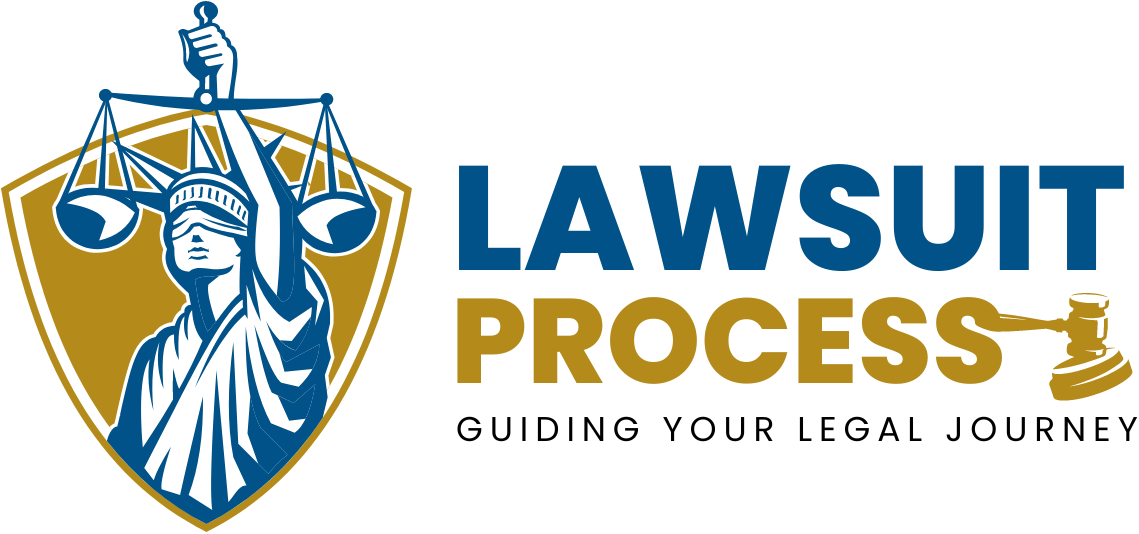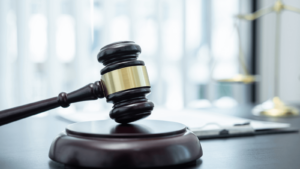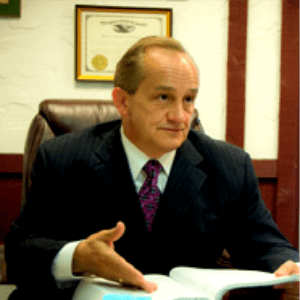Jury nullification is a concept that exists at the intersection of law, morality, and civic duty. Often misunderstood and seldom openly discussed within courtrooms. Jury nullification reflects a juror’s latent power to judge not only a case’s facts but also the law’s fairness and application. Though legally permissible, this practice remains a deeply contentious subject within the U.S. judicial system and beyond.
Understanding jury nullification, its origins, and its impact can offer valuable insights into the complex relationship between legal systems, societal values, and human conscience.
Table of Contents
- The Definition of Jury Nullification
- Reasons Jury Nullification Occurs
- Historical Origins of Jury Nullification
- Legal Framework and Position in the U.S. Justice System
- How Jury Nullification Works in Practice
- Notable Examples and Precedents of Jury Nullification
- Controversies and Debates on Jury Nullification
- An International Perspective
- Practical Guidance for Jurors
- Key Takeaway
The Definition of Jury Nullification?
Jury nullification happens when a jury decides not to convict a defendant, even if the evidence presented by the prosecution clearly shows the defendant is guilty of charges. This can occur when the jury believes that the law itself is unfair, the punishment is too harsh, or applying the law in the specific case would lead to an unjust result.
So, in simple terms, it’s when a jury says, “Yes, the person broke the law, but we think convicting them would be wrong, so we won’t do it.”
The concept essentially empowers ordinary citizens to resist legal statutes they consider unfair. While judges generally expect jurors to follow the letter of the law and the court’s instructions, the reality is that the jury’s verdict is final in criminal cases. No one can overturn an acquittal—even if it clearly contradicts the evidence.
So, why will a jury decide to nullify the effect of the law? Let’s talk about the reasons a jury nullification occurs.
Reasons Jury Nullification Occurs
Jury nullification can arise from various complex motivations, reflecting the interplay between legal mandates and human values. While each situation is unique, some common reasons include:
-
Moral or Ethical Objections to the Law Itself
- Perception of Immorality: Jurors may view the statute under which the defendant is charged as fundamentally unjust or morally wrong.
- Violation of Deeply Held Values: If the law conflicts with widely shared moral principles—such as fairness, compassion, or fundamental rights—jurors may refuse to apply it.
-
Belief That the Law Is Unfairly Applied
- Discriminatory Enforcement: Jurors may nullify if they suspect that the law disproportionately targets certain racial, ethnic, or socioeconomic groups.
- Arbitrary or Harsh Sentencing: Excessive or mandatory minimum sentences that seem disproportionate to the offense may prompt jurors to resist enforcement.
-
Sympathy or Empathy for the Defendant
- Personal Connection: Jurors who identify with the defendant’s circumstances—economic hardships, personal struggles, or shared cultural backgrounds—may feel compelled to acquit.
- Perceived Injustice in the Individual Case: Unique or mitigating circumstances, such as the defendant’s health, intentions, or environment, can lead jurors to deem a strict legal consequence unwarranted.
-
Distrust of the Government, Law Enforcement, or the Legal Process
- Skepticism About Prosecutorial Motives: If jurors believe the prosecution is acting with hidden agendas or political pressure, they may refuse to uphold such charges.
- Concerns About Police Conduct: Evidence of police misconduct, entrapment, or questionable investigative methods can erode trust, encouraging jurors to nullify.
-
Resistance to Socially Controversial or Unpopular Laws
- Shifting Public Sentiment: As societal values evolve, jurors may align their verdict with contemporary morals, refusing to enforce outdated or unpopular rules.
- Civil Disobedience by Proxy: By acquitting, jurors can silently protest policies they find objectionable, effectively engaging in a form of civic disobedience within the legal arena.
-
Unwillingness to Criminalize Certain Behaviors or Individuals
- Non-Violent Offenses: Jurors are often less inclined to convict when the crime is victimless, widely tolerated, or seen as overly penalized.
- Cultural Shifts in Norms: If prevailing attitudes have changed and the law has not caught up, jurors may nullify to reflect current social standards.
-
Conflicting Interpretations of Justice or the Jury’s Role
- Conscience Over Compliance: Some jurors feel morally obligated to correct perceived injustices, acting as guardians of justice rather than passive enforcers of the law.
- Misunderstandings or Confusion: Complex or counterintuitive legal standards can lead jurors to rely on moral intuition, effectively nullifying due to uncertainty.
In many instances, jury nullification emerges from a combination of these factors rather than a single cause. The jury room, shaped by human perspective and moral and social intuition, can become a space where law and conscience intersect in unpredictable ways.
Historical Origins of Nury Nullification
The roots of jury nullification can be traced back centuries, especially within the Anglo-American legal tradition. One of the most famous examples is the trial of John Peter Zenger in 1735, wherein a jury acquitted Zenger of libel against the British governor, essentially rejecting the oppressive laws governing freedom of the press at the time. This incident, and others like it, helped shape the early American legal landscape and underscored the jury’s role as a safeguard against government tyranny.
During the colonial era and the early years of the United States, jurors were often seen as the last line of defense against unjust laws. Citizens, sometimes more so than judges and legislators, could reflect the community’s conscience. Over the years, as the American legal system matured, the open endorsement of nullification waned. Replaced by a more rigid focus on following judicial instructions and codified laws.
Legal Framework and Position in the U.S. Justice System
From a legal standpoint, jury nullification is not codified as a formal right of jurors, yet it is universally understood that jurors cannot be punished for their verdicts. The U.S. Constitution’s Sixth Amendment guarantees the right to a trial by jury, but it does not explicitly address how jurors should respond when they find the law itself objectionable.
Currently, most judges and prosecutors prefer to discourage explicit mentions of jury nullification. Courts rarely, if ever, instruct jurors that they can nullify. In fact, many jurisdictions have established rules and precedents to prevent lawyers from openly encouraging nullification. Nonetheless, the legal system acknowledges, albeit reluctantly, that a jury can return any verdict and that an acquittal cannot be overturned. This subtle yet potent power persists in the shadows, recognized but rarely embraced by the judiciary.
How Jury Nullification Works in Practice
In practice, jury nullification typically occurs in a subtle manner. Jurors are not told, “You may set aside the law.” Instead, a juror who personally believes that applying a particular law would result in an unjust outcome may simply vote “not guilty” despite the evidence. If enough jurors share that moral stance, the jury can effectively reject the prosecution’s case, regardless of how well-founded it may be.
This often happens in cases where the law is viewed as overly harsh or morally questionable. For example, jurors who strongly oppose certain drug laws may refuse to convict a defendant on a low-level drug offense even if the defendant clearly violated the statute. Another scenario might involve a defendant who technically violated an obscure or outdated statute that no longer aligns with community standards.
Notable Examples and Precedents of Jury Nullification
Jury nullification has appeared throughout American history, often during periods of social upheaval or when laws have fallen out of sync with prevailing moral standards. Some notable instances include:
-
The Trial of John Peter Zenger (1735)
In colonial New York, Zenger’s printing of articles critical of the British governor constituted a clear violation of seditious libel laws. Nonetheless, the jury refused to convict, effectively nullifying the oppressive statute and laying an early foundation for freedom of the press.
-
William Penn and William Mead’s Trial (1670, England)
Although this took place before American independence, its influence was profound. Penn and Mead faced charges for violating the Conventicle Act (which prohibited religious assemblies outside the Church of England). The jury refused to convict, even under severe judicial pressure, illustrating that jurors could not be coerced into enforcing an unjust law. This landmark decision helped establish the principle of jury independence that later influenced American legal traditions.
-
Fugitive Slave Act Resistance Cases (Mid-19th Century)
In the decades before the Civil War, Northern juries often refused to convict those who aided escaped slaves. Laws like the Fugitive Slave Acts mandated the return of runaway slaves, but many citizens found these statutes morally abhorrent. In cases such as those following the rescue of Shadrach Minkins in 1851, juries in Northern states acquitted defendants who had clearly broken federal law, effectively nullifying laws that clashed with the emerging anti-slavery sentiment.
-
Prohibition-Era Liquor Law Trials (1920s and Early 1930s)
During Prohibition, laws banning the production and sale of alcohol proved deeply unpopular. Many juries simply would not convict defendants charged with violating alcohol prohibition statutes. By refusing to enforce these unpopular laws, jurors contributed to the eventual repeal of Prohibition, demonstrating how jury sentiment can shape legal enforcement and policy outcomes.
-
Vietnam War-Era Draft Resistance Cases (1960s-1970s)
Some Americans opposed the Vietnam War on moral and political grounds. In a handful of draft evasion trials, juries refused to convict defendants who had deliberately violated the Selective Service laws, using their verdicts to express broader societal doubts about the war itself and effectively nullifying these requirements for those specific cases.
These historical examples underscore how jury nullification has served as a tool for communities to resist or reform laws that they perceived as unjust. While these cases remain exceptions rather than the norm, they demonstrate the enduring potential of jurors to influence the direction of legal and social policy.
Controversies and Debates on Jury Nullification
The concept of jury nullification provokes passionate debate. On one side, proponents see it as a critical check against oppressive laws and government overreach. In their view, jurors serve not only as fact-finders but as moral arbiters of the law itself. Thereby ensuring that the legal code remains closely aligned with societal values.
On the other side, critics argue that jury nullification undermines the rule of law. They suggest letting jurors ignore statutes introduces unpredictability and inconsistency into the legal system. Opponents also worry that nullification can be employed not solely for moral reasons but out of bias, prejudice, or misunderstanding. In these cases, nullification might lead to unjust acquittals—where powerful cultural prejudices, for instance, allow a clearly guilty defendant to walk free.
In sum, the debate hinges on whether one views the jury as a safeguard against legal injustice or as a neutral body meant solely to apply the law as given.
An International Perspective
Jury nullification is not unique to the United States. Though it may be less common or less openly discussed elsewhere. In many countries with jury systems—such as the United Kingdom, Canada, and Australia, juries sometimes engage in nullification. However, judicial instructions and legal cultures vary. This often makes it more challenging for jurors to learn about and consider such an option.
In countries without a jury system or where jury trials are rare, the entire notion of nullification may not apply in the same way. Nonetheless, the core dilemma—how to handle cases where the law seems out of sync with the moral compass of the citizens—remains a universal concern.
Practical Guidance for Jurors
Jurors who find themselves troubled by the application of a certain law often face a difficult choice. Officially, jurors take an oath to follow the law as instructed. If a juror openly declares their intent to nullify, they risk being dismissed from the jury during deliberations for failing to adhere to their oath.
Realistically, there are no formal instructions on how to nullify. Jurors who believe in their hearts that a conviction would be a moral wrong can simply vote “not guilty.” They need not, and generally should not, articulate their reasoning if they wish to avoid conflict with other jurors or scrutiny from the court.
Key Takeaway
Jury nullification is a controversial yet significant part of the criminal justice system. With origins dating back centuries. It exists in a gray area where ethics, legal principles, and civic duty intersect. Understanding jury nullification and its importance provides a deeper appreciation for the complexity and humanity within judicial processes. Whether seen as a vital check against oppression or a disruptive influence, jury nullification highlights the enduring power of everyday citizens to influence the application of the law.
Here are some key points to take away:
- Jury nullification involves jurors acquitting a defendant they believe to be technically guilty due to moral, ethical, or policy objections.
- It has historical roots in high-profile cases like the John Peter Zenger trial and has been employed to oppose unjust laws from colonial times through Prohibition and beyond.
- While not formally sanctioned, it is implicitly protected since jurors cannot be punished for their verdicts.
- Jury nullification sits in tension with the principle of the rule of law, as it can introduce unpredictability and subjectivity into legal outcomes.
- The practice remains a topic of fierce debate, with supporters praising it as a safeguard against tyranny and critics condemning it as a threat to legal consistency.
- Internationally, the phenomenon exists in other jury-based systems, although cultural and legal norms shape how openly it is acknowledged.
- In practice, nullification occurs subtly, often without overt acknowledgment within the jury room.
Need assistance with your legal matters? Check our directory of top lawyers to find a lawyer you can work with.










